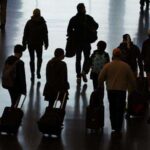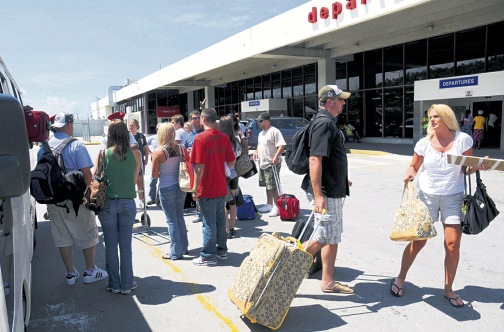AIR passenger taxes in Jamaica at the equivalent of US$21 are US$2 below the international average — but still too high to make the island competitive, according to a just-released Taxes on Flying Study by global accounting network UHY.
In fact, the UHY described the tax as “amongst the highest in the world” especially for passengers who connect through other countries which in turn slap on their own tax.
“Flying from Jamaica and in the Caribbean attracts substantial taxes, and that hurts airlines, business users and consumers,” stated Dawkins Brown, managing partner of UHY Dawgen Chartered Accountants in Jamaica on the report in a release to the Jamaica Observer. “Online search engines have helped make tourism an even more competitive market, so reducing the cost of a package holiday by cutting out taxes on flying could make a meaningful difference. High air taxes can also be harmful to businesses, as in many commercial relationships there is simply no substitute for face-to-face contact.”
The Jamaica Civil Aviation Authority (JCAA), which recommended passenger fee increases last year, told the Business Observer that it would respond to queries on the report. The study looked at taxes and compulsory government charges imposed per passenger on an economy-class flight by 21 governments around the world. It also analysed additional charges imposed on a per passenger basis by airport operators.
UHY, established in 1986, is a network of independent audit, accounting, tax and consulting firms with offices in over 296 major business centres across more than 89 countries.
Jamaica imposes a flat levy of US$21 on short-haul flights and long-haul flights, stated the report. That was below the global average of US$23 on a short-haul flight and US$53 on a long-haul flight. The UHY study pointed out, however, that the total amount of taxes paid by travellers departing from Jamaica’s airports will usually be higher due to the many interconnecting flights to other countries in the Caribbean or to the USA.
“For example, a passenger flying from Kingston to London via Port of Spain would pay an additional US$11.50 to the Trinidad & Tobago government. Passengers flying from Jamaica to the USA would also have to pay the US International Transportation Tax, customs user fee and Animal and Plant and Health Inspection Service fee, amounting to US$28,” it stated.
Additionally, airlines also add their own charges such as ‘fuel charges’ which many consumer groups argue should simply be included in the cost of the flight, it stated.
“For consumers, taxes and fees are confusing; they mean the final ticket price is usually a shock. They also add to the headache of working out how much extra a flight booked using air miles will actually cost, as well as what can be reclaimed if a customer has to cancel their ticket,” added Brown. “In Jamaica and around the world, the issue of complex charges is an area where far greater progress needs to be made to ensure better transparency and competition. Businesses and consumers would greatly benefit if regulators and tax authorities kept aviation taxes low and ensured that charges were more transparent.”
The UHY study indicated that the most expensive taxes are for long-haul flights departing from Russian and UK airports at US$272 and US$111, respectively.
Japan, Puerto Rico and many smaller European countries do not impose any taxes on individual passengers, including Ireland, Slovakia and Belgium.
“In many cases there has been intense lobbying by local airports and business groups to keep taxes on flying to a minimum to prevent travellers using airports in neighbouring countries with lower taxes,” it stated.
UHY added that on top of taxes and compulsory payments imposed by government bodies, additional airport fees are levied on individual passengers for a short-haul flight.
“Although airport fees are usually passed on to the consumer, airlines often complain that the charges amount to an abuse of an airport’s monopoly status if it has a particularly favoured geographic location near a major city,” it added.
UHY explained that, although taxes on flying are often listed as ‘green taxes’, that it’s rare for such
revenue to solely benefit environmental projects.












